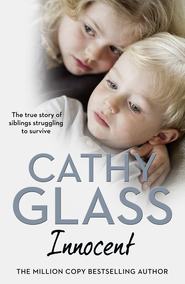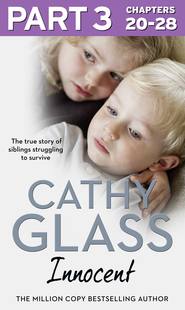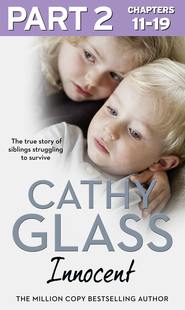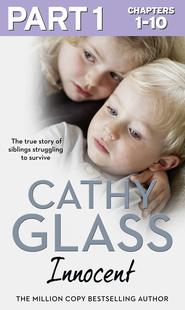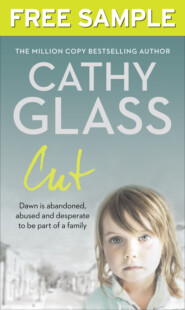По всем вопросам обращайтесь на: info@litportal.ru
(©) 2003-2024.
✖
Where Has Mummy Gone?: Part 3 of 3: A young girl and a mother who no longer knows her
Настройки чтения
Размер шрифта
Высота строк
Поля
Melody shook her head.
‘It’s a forever family where you stay for good and become a permanent member of that family. All families are different. Some have one parent, some two, and some families have a lot of children, while others only have one, so they have all the attention. We are looking for a special family for you where there will just be you and the mummy, like you used to have before you came here.’
I see, I thought, so she certainly wouldn’t be staying with me then. I looked at Melody sitting beside me as Neave continued her spiel, selling Melody the idea of a single-parent adoptive family where she would be the only child. The family-finding team usually come up with a profile of the family they are looking for, which includes factors like ethnicity, whether the child should be the only child and, if not, should they be the youngest in the family (or didn’t that matter). This was to ensure the child felt comfortable and to give them the best chance of bonding with their new family, and the family with the child. However, in profiling the ideal family, the social services were of course limiting their options. I thought the chances of finding a single woman with no other children who wanted to adopt an eight-year-old with a history of challenging behaviour were pretty slim. When Neave got to the end she asked Melody if she had any questions.
‘Why can’t I see my mummy every week?’
‘Mummy is very ill,’ Neave said. ‘It must be difficult for you, seeing her so poorly.’
‘No, it’s not, I have fun. I make jewellery and things.’
‘Good. But your mummy doesn’t know you are there.’
‘Yes, she does.’
‘Maybe she still does sometimes, but there will come a time when she doesn’t know who you are, which will be very upsetting for you.’ While this was harsh, it was also true and something I’d considered. I did have concerns about Melody witnessing her mother’s decline and for this reason I hadn’t opposed the reduction in contact.
‘You will still see your birth mummy,’ Neave said, introducing the term, ‘but not as often. And when we find an adoptive mother you will be seeing her lots before you go to live with her.’
Melody just stared at Neave. It was a lot for her to take in all in one go: the idea of loosening the bond with her birth mother so she could transfer her affection to someone she had yet to meet. But it was standard practice to introduce the idea of a forever family early on – if that was in the care plan – so the child had time to adjust and get used to the idea.
‘I know it’s difficult for you,’ Neave said with a reassuring smile. ‘You did a great job looking after your mother and now it’s time to let others look after her so you can get on with your life.’
True, I thought, but easier said than done.
Chapter Twenty-One
Match (#ufda19fe3-c307-507b-954f-8c3c300c6426)
The following day, the letter I’d been waiting for from CAMHS arrived. Melody was to start play therapy the following Tuesday, for an hour a week, 4–5 p.m. When I told Melody she shrugged dismissively and said she could do painting and artwork here with me.
‘It’s a bit more than that,’ I said. ‘Marina will help you to sort out your feelings about what has happened.’
‘How?’ she asked.
I hesitated and realized I didn’t know. I’d taken plenty of children I’d fostered to CAMHS, but the carer or parent always stays in the waiting room while the child is with the therapist and there is virtually no feedback. I knew play therapy involved artwork and appeared to help some children, though not all, but I didn’t know any more than that. It occurred to me that perhaps foster carers should experience a play therapy session as part of their training so we had some understanding of how it worked. I made a mental note to suggest it to Jill when she next visited.
‘I’m not sure exactly how the play therapy does work,’ I admitted to Melody. ‘You could tell me if you like once you’ve started going.’ Which seemed to appeal to Melody.
‘OK. I’ll go, and give it a try,’ she said.
‘Good girl.’
I purposely hadn’t told Melody that Mr Wilson had died, for it would have raised the question – how did I know? Also, I rather hoped I wouldn’t need to tell her, as I felt she had enough sadness in her life to deal with without adding to it. I hoped she wouldn’t notice that he was no longer calling out from his room. How wrong I was.
On Friday, armed with our usual batch of iced cakes, fruit, biscuits and another card made by Melody for her mother, we went to the care home straight after school. I’d also put my camera in my bag, as I wanted to try to take at least one good photo of Melody with her mother and give them both a copy. We were greeted at the door by Mr and Mrs Bennett, gesticulating to be let out. The care assistant who opened it said that Amanda was in the lounge and we headed down the corridor. As we passed Mr Wilson’s room I glanced at Melody. A call buzzer could be heard bleeping from another room close by, but Mr Wilson’s door was closed and the room silent.
‘No Mr Aeroplane Man,’ Melody remarked.
‘No,’ I agreed. It was a statement, not a question, so I didn’t add anything and thought I’d got away with it.
Amanda was sitting as usual in one of the high-backed chairs at the edge of the room, looking clean and well dressed in the clothes donated to the care home. They kept all the residents looking very presentable. The patio doors leading to the courtyard were open and two residents were pacing up and down outside. Many of the residents paced from time to time and I supposed it was part of their illness, although I hadn’t seen Amanda do it yet. The occupational therapist sat at the table, helping two ladies play a game of cards. She said a welcoming hello and asked Melody if she’d liked to bring her mother to join in. I went with Melody to Amanda and said hello as Melody kissed her cheek. She asked her if she wanted to play cards and, without replying, Amanda stood and went to the table.
Once they were settled, I sat in the chair Amanda had vacated with a resident on either side. The two care assistants in the room were busy with other patients. From where I sat I could see the game of cards and it was very slow. It seemed to be a form of snap where the players were meant to shout ‘Snap!’ when two cards that were the same appeared from the pack, but it had lost its usual fervour as Amanda and the other two residents had to be told when to call ‘Snap’. I think it was more to help them recognize the cards than win a game, although of course at her age Melody couldn’t appreciate that. After two very slow, laborious games, when there was no competition and Melody won easily, she lost interest and asked her mother if she wanted to go to her room. Amanda ignored her and the occupational therapist began to collect up the cards, ready to deal again for another game. I saw Melody place her hand on her mother’s arm and tug slightly, as children do when they want to attract a parent’s attention. Amanda reacted by slapping her daughter sharply on her bare arm.
‘Ouch!’ Melody said, rubbing her arm. ‘That hurt, Mum!’
‘You mustn’t slap,’ the occupational therapist told Amanda firmly.
I went over. ‘Are you OK?’
‘Mum slapped me,’ Melody said, clearly shocked.
‘She didn’t mean to,’ I said. I’d heard care assistants before tell residents not to slap, pinch, thump or grab, but Amanda hadn’t behaved like this towards Melody before. I assumed it was another indication that her illness was progressing. Amanda remained unconcerned by what she’d done.
‘Amanda,’ I said, leaning in towards her. ‘Melody would like to go to your room with you now. Is that OK?’
Amanda looked at me and then at Melody, as if seeing her for the first time. ‘Go to my room,’ she repeated, and she stood and left the table.
I thanked the occupational therapist, and Melody and I followed Amanda out of the lounge and along the corridor. Although Mr Wilson’s room remained silent, Mr Andrews appeared from the opposite direction on his way to the ladies’ lounge making his ‘boo-boo’ sound.
‘Boo-boo,’ Amanda imitated as he passed.
Mr Andrews immediately stopped, turned and squared up to her. ‘Boooooooo!’ he shouted loudly, jutting out his chin aggressively.
‘Booooooo!’ Amanda yelled back, mimicking his posture.
Melody giggled, but I was concerned.
‘Come on, Mr Andrews,’ his care assistant said and, taking him by the arm, led him away.
Amanda looked as though she might go after him, so I linked my arm in hers and, drawing her away, said, ‘Melody wants to go to your room now.’ Which seemed to work and we continued along the corridor, Mr Andrews’ ‘boo-boo’ sound steadily receding. While the scene had had some comical elements, they had squared up to each other quite aggressively and if left unchecked it could have turned nasty. The care assistants often had to deal with small acts of aggression between the patients.
Once in Amanda’s room, Melody shared some of the cakes with her mother and then put the rest in the bedside cabinet and gave me the box from the previous week. At some point during our visits to her mother’s room Melody usually checked the cupboards and drawers to make sure her mother had everything she needed. Today in the top drawer she found the letter she’d written and was delighted. ‘Look, my letter! Did you read it, Mum?’
Amanda took the few steps across the room and snatched the letter, as she had with me the week before, and stuffed it into her pocket. Melody looked taken aback.
‘She probably thought you were going to take it from her,’ I suggested. ‘It’s very precious to her.’
‘I’m not going to take it, Mum,’ Melody told her. ‘I wrote it for you.’
Yet despite incidents like this Amanda still had flashes of lucidity and recognition. With the letter in her pocket for safekeeping, she took the photograph album from her bedside cabinet and, sitting on the bed, began looking through it, associating this act with Melody. Melody joined her, and as Amanda turned the pages Melody talked about each photograph as they had many times before. I thought it would make a nice picture – the two of them together – and I took my camera from my bag.
Melody, always happy to have her picture taken, smiled at the camera, but Amanda just looked blank.
‘Smile,’ I encouraged as I looked through the viewfinder. ‘Smile, Amanda.’ But no smile came. I hadn’t seen her smile in a long time and I knew that smiling was lost in patients with advanced dementia. I tried again without success and then took a picture. Although it wasn’t full face, it was nice and showed the two of them sitting close and looking at the album.
We stayed for an hour; it was long enough. When I said it was time to go Melody didn’t protest. ‘See you next week, Mum,’ she said. Then realized her mistake. ‘No. See you in two weeks.’ Neither of which meant anything to Amanda, for she’d long lost any sense of time.
Другие электронные книги автора Cathy Glass
Innocent




 0
0






